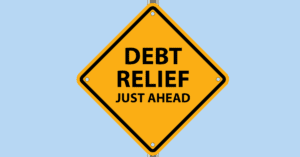

ONTARIO MINISTRY OF CONSUMER SERVICES
Have a complaint? Need Help?
- Contact the business and explain your specific complaint
- Deliver it in writing. Keep proof of that it was received (such as sending it by registered mail), and keep records of all communication with the business.
- If you are still not satisfied, file a formal complaint with the Ministry of Consumer Sevices
How to file a complaint with the Ontario Ministry of Consumer Services:
- Visit the Ministry’s website at www.ontario.ca/ConsumerServices
- Or call, 416-326-8800 or toll-free at 1-800-889-9768
If you’re behind in your payments and debt collectors are calling. Do you know:
- What your rights are?
- What your responsibilities are?
- How to stop collection calls?
- How to deal with collection agencies?
Businesses hire collection agencies in Ontario to collect money that is owed, but there are clear rules they have to follow. Find out how the law protects you from harassment and unfair tactics.
REMEMBER:
Ignoring a collection agency’s attempts to contact you will not help solve your problems. It might stop the collection calls but if they cannot reach you, they may proceed with legal action. Sooner or later, you will have to deal with your debt problems.
How can I protect myself?
Dealing with a collection agency in Ontario: when they first contact you a collection agency must send you written notice which includes:
- Their name and authority to collect payment from you.
- The name of the person or business to whom the debt is owed.
- The amount they say you owe (the balance).
The collection agency must also:
- Wait six days after mailing this notice before calling you.
- Give you notice if they intend to advise the creditor to take legal action against you.
- Once they have spoken with you, the agency cannot contact you (including through voicemail or e-mail) more than three times in a seven day period, unless you consent.
The collection agency, in Ontario, cannot contact you:
- If you send a registered letter to the agency saying that you dispute the debt and require that the matter be taken to court.
- If you or your lawyer notify the agency by registered mail to communicate only with your lawyer. You must provide your lawyer’s name address and phone number
Collection agencies are prohibited from calling:
- Before 7 a.m. or after 9 p.m., Monday through Saturday.
- On Sunday, except between 1 p.m. and 5 p.m.
- On a holiday
The collection agency cannot:
- Use threatening language.
- Use undue or unreasonable pressure.
- Continue to contact you if you have told them you are not the person they are looking for, unless they take reasonable steps to ensure you are that person.
- Give false or misleading information to anyone
Did you know? Collection agencies are the most common complaint topic at the Ontario Ministry of Consumer Services. Most complaints relate to agencies that make rude and harassing calls.
Getting out of debt:
- Repay any debt that has gone to a collection agency as soon as possible. Negotiate a payment schedule you can live with and stick to it. Ensure this agreement is put in writing.
- If you need to borrow to pay off debts, look for the least costly way. Compare rates on credit cards and personal loans.
- Never send cash. Always get a receipt when you make a payment. Keep your receipts or cancelled cheques.
- If you have a lot of debts, you may want to consolidate them into a single loan. Talk to a loan officer at your financial institution.
- Call the Ontario Association of Credit Counselling Services. Their members offer debt management services to help you solve your financial problems. To find the nearest office to you, call toll-free at 1-888-746-3328 (888-71N-DEBT).
If a collection agency violates any of these standards, send them a written complaint by registered mail.
Contact Rumanek & Company Ltd. for more information on bankruptcy in Ontario and debt solutions. Please fill out the bankruptcy evaluation form. To learn more please visit our YouTube Channel. Rumanek & Company have been helping individuals and families overcome debt for more than 25 years.




